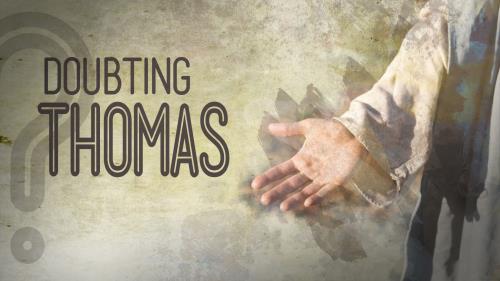-
How Can I Believe The Bible? Series
Contributed by Brad Bailey on Apr 24, 2018 (message contributor)
Summary: How Can I Believe the Bible? Series: How Can I Believe? Brad Bailey – April 22 2018
How Can I Believe the Bible?
Series: How Can I Believe?
Brad Bailey – April 22 2018
Main point: To help understand how we can trust the Bible in the face of the common cultural criticisms that are made about it bearing myth and moral reprehensible elements.
We are continuing our series entitled: How Can I Believe?.
Each week we are engaging a different question and focus.
How Can I Believe?
• How Can I Believe in God?
• How Can I Believe in the Bible?
• How Can I Believe in Jesus?
• How Can I Believe in One Ultimate Truth?
• How Can I Believe in a Good God in a Suffering World?
• How Can I Believe in God and Science?
• How Can I Believe What is Often Associated with Hate and Hypocrisy?
The premise which I have noted… is that when we engage the large questions of life…they are always about trusting what we don’t understand by what we do understand…that is…there is always that which we do not understand… that is beyond our finite nature …and on such matters…we ultimately must decide what makes the most sense from reason…but also from intuition… and imagination and every facet of our being.
Our goal is to understand that faith has it’s questions…and it’s reasons.
So today, the question is: How Can I Believe the Bible?
In just the past few years… it has become fashionable to challenge the authority of the Bible. And this is particularly true in western culture….where the Scriptures have been the foundation of the culture…because to challenge them offers a way to declare how smart one …how one is declaring freedom from ignorance… and is free from any false constraints placed on them.
It’s said to be cruel and oppressive and those who uphold the historic view of its truthfulness are seen in the same light.
And as fewer lives have either read the Bible…or how to understand what it really teaches… it is easy for many to just hear these critiques and agree. And so it becomes vital to engage the challenging issues that are raised.
This is why as many of you may recall that at the start of last year… we did an entire series on the Bible itself… entitled “Getting to Know the Book that Knows Me.”
So today… more a summary…and encourage you to take a little more time if these questions are significant to you.
What is the Bible?
• The Bible is a library of books. Sixty-six, to be exact, written by over forty authors covering a period of around 1500 years.
Most of the books bear the name of its author and are pretty straightforward.
Sometimes the books carry the name of the main event that the book talks about. For example, the book of Genesis is about the genesis – the creation, the beginning – of the world. The book of Exodus deals mostly with the great exodus, or departure, of the Jewish people from slavery under the leadership of Moses.
A lot of the books were actually letters, and carry the name of the people they were sent to. So Philippians is the name of the book, or letter, sent to the people who lived in the city of Philippi.
So the Bible is a library of books, reflecting different times in history, different authors, different settings, and different emphases.
• The Bible is divided into two Testaments… reflecting two primary terms by which God was relating to humankind. The word “testament” simply means an “agreement” or “covenant” that one makes with another. So the Old Testament refers to the old covenant that was made as God originally began to call out a people to be in covenant with Him… through whom he would bless the whole world. As they failed to be able to be faithful to that covenant…God spoke of sending a Messiah to save the whole world and create a new covenant. That new covenant or New Testament unfolds with the coming of Christ…the Messiah….who would fulfill such faithfulness and through whom human life could be right…a new basis for covenant.
What do we mean by “believing in the Bible?
What we generally mean is something to the effect of…
Can I trust that it communicates something from God?
Is there divine revelation which can be foundational to what I build my life upon?
What’s important to stop and realize is that we are not asking.
We are not asking if we believe that this is a magical book like in some story about wizards and some ancient secret book with spells and spiritual powers.
We are not presuming that we believe that God sat down and dictated these writings. God is infinite and Spirit.
The fundamental nature of what it means to “believe” or trust in the Bible, is to believe and trust in God’s ability to accommodate human understanding.

 Sermon Central
Sermon Central



